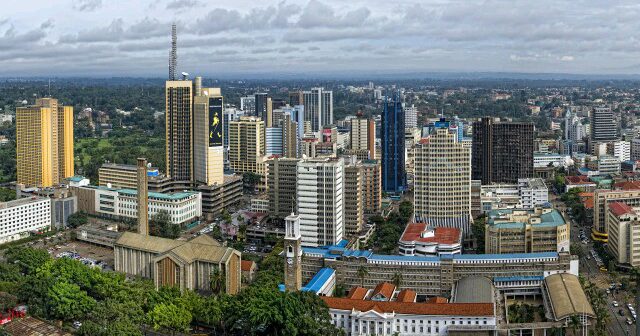Cost of doing business in Kenya: BY PHYLLIS WAKIAGA: We are living in tough economic times. Businesses are struggling to stay afloat and the job market shrinks each passing day. This is not a situation that is purely due to coronavirus.
Entrepreneurship and starting up businesses is becoming a pipe dream for a lot of young people. The Government needs to wake up to these realities and start implementing urgent measures and policies that will help to salvage the situation.
Stanbic Bank East Africa recently discussed their Purchasing Managers’ Index (PMI) on Manufacturing, citing that a lot of manufacturers are opting to leave the country for better alternatives offered by other countries in the region.
See why this KQ plane was abandoned in Ethiopia
Their main challenge being an unpredictable environment and increasingly unplanned taxation.The high debt situation in which we find ourselves as a country is binding us into a cycle where we inevitably have to come up with new taxes to get revenue, which is becoming untenable for many businesses.
It is difficult for meaningful economic gains to be realized when the cost of doing business keeps increasing and by far, outweighs the measures being employed to make them productive.
Those investing in the manufacturing sector right now are doing so against all odds to ensure that they increase their economic contribution to nation-building and job creation.
This is to echo once again, another set of findings by Stanbic Bank which indicate that the growth in the economy is superficial as it is not able to generate jobs and bring us out of this economic downturn.
Most of the sectors within Manufacturing need to bring in raw material from outside the country in order to come up with the end product for both the local market and exports.
Agnes and Philip Murgor: Success secrets behind our 650 acre dairy farm
In recent years, the cost of bringing in these raw materials continues to rise, increasing the manufacturing cost and related production costs, resulting in an end product that is expensive for both local, regional and global markets.
This is what is resulting in the current situation where Kenya is at a 13 per cent cost disadvantage compared to our neighbouring countries within the EAC.
Not forgetting that we aim to compete globally with countries that have better tax models that enable them to produce at lower costs.
The Finance Act assented by the President on 7th of November 2019 took measures to reduce the cost of raw material imports by providing lower rates of Import Declaration Fee (IDF) and Railway Development Levy (RDL) at 1.5 percent.
The major benefit that was to be realized through these new adjustments was to effectively lower the cost of bringing in raw material, making local goods more competitive against imported finished goods and counterfeits as well as increasing local products’ competitiveness regionally and globally.
But despite these changes being made in the budget, they have not been effected by the relevant institutions and manufacturers continue to pay high costs for their inputs. It seems that the process is stuck somewhere between different government agencies therefore making it difficult to implement the directives.
To add to these fees, KenTrade has now introduced a new service fee to all its users which was unplanned for and increases the cost of doing business. There is need to fi x the issue of coordination in public service delivery by Government agencies, because a lack of synergy ends up becoming a very costly affair for citizens.
When important processes for business such as these stall, it appears as though these departments and agencies are not reading from the same page and are working at cross purposes.
Taxes are by far the biggest absorber of wealth in this country for businesses and individuals. Taxation should be a tool for progress, but in our situation, it seems to be aggravating the prevailing slow-down of the economy.
Goods that are expensive to produce, will be expensive on the retail end. The customer will be forced to pay more, and eventually, they will decrease the quantities they purchase.
This will make it harder for producers to move these goods off the shelf and businesses will suffer. The intention behind the lower rates of IDF and RDL was a progressive one and was done in the spirit of revitalizing the sector’s productivity towards increasing job creation and boosting exports.
But good policies are only ‘good’ when executed effectively and the ultimate goal achieved.
Otherwise, they remain nicely written papers in government archives.The budget for the next fiscal year is going to be read in the next few months, and it will be disappointing if by then, recommendations made from the past budget have not been actualized.
The Government needs to urgently remedy this situation to enable businesses to help turn around the trajectory of our economy.
The writer is the former CEO of Kenya Association of Manufacturers and the UN Global Compact Network Representative for Kenya.









The disorganization and failure to implement policies is just part of the plan to keep milking a cow that has ceased to produce any milk.my friend all government agencies are following the same script i.e tax tax and tax some more